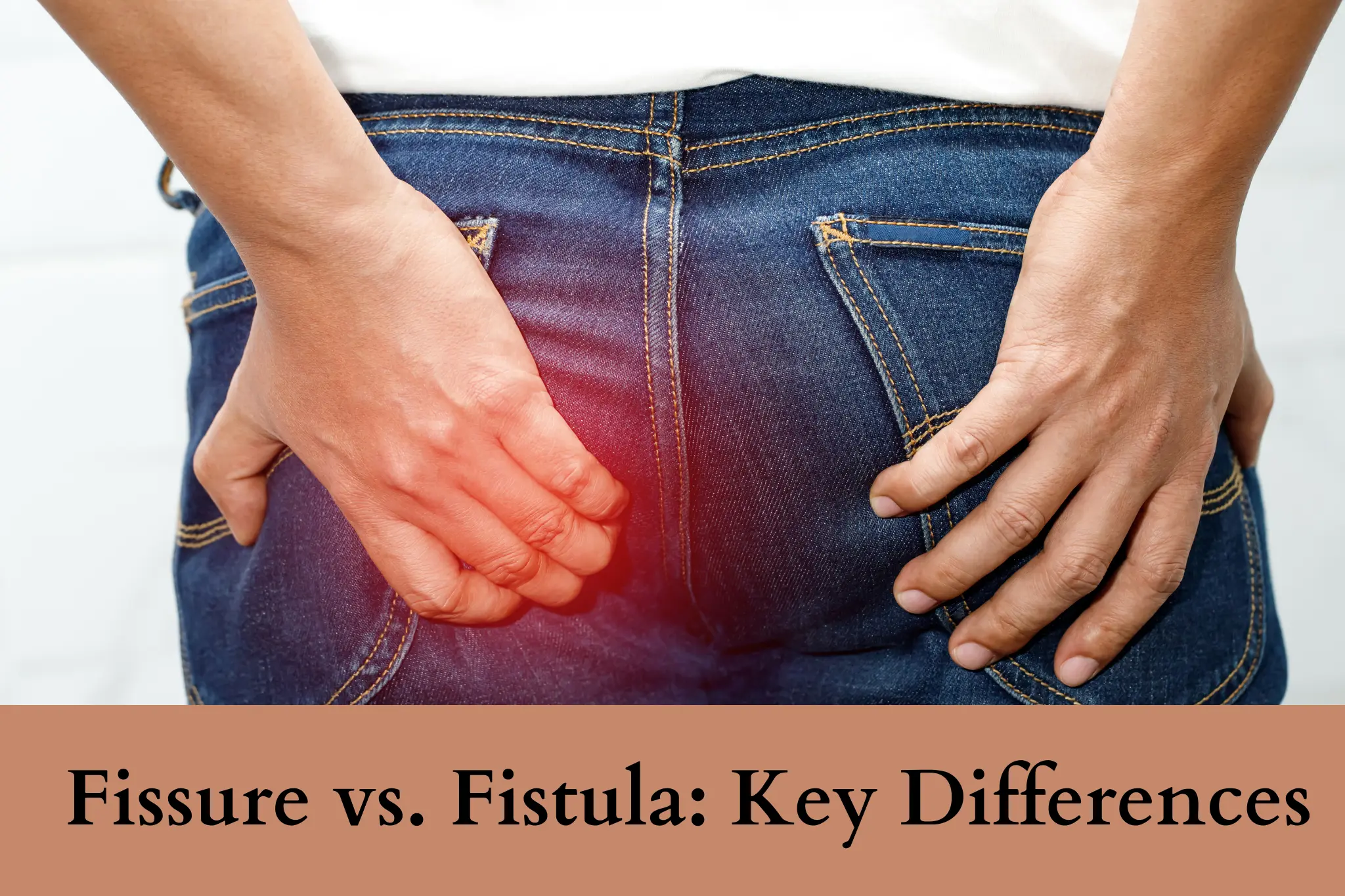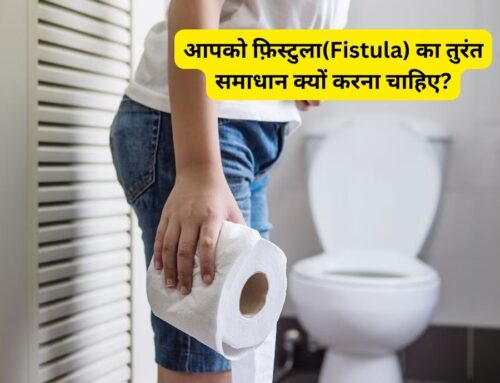Fissures and fistulas are two distinct but often confused medical conditions that affect the anal region. While they share some similarities in symptoms, understanding the differences between them is crucial for receiving the appropriate treatment.
In this blog post, we’ll explore what fissures and fistulas are, how to differentiate between them, and the treatments available for each condition.
Fissures
A fissure is a small tear or cut in the lining of the anal canal. It often occurs due to the passage of hard or large stools, leading to trauma and damage to the sensitive tissue. The primary symptoms of an anal fissure include:
- Pain during bowel movements: Individuals with fissures typically experience sharp, intense pain during and after passing stools.
- Bleeding: Fissures can cause bright red blood on the toilet paper or in the stool, though the bleeding is usually minimal.
- Itching and discomfort: Some patients may also experience itching, discomfort, and a burning sensation in the anal area.
- Tightening of the anal sphincter: The pain from fissures can lead to involuntary tightening of the anal sphincter muscle, making bowel movements more painful.
Fissures are typically short-lived and can often be managed with dietary changes, increased fiber intake, and over-the-counter creams or ointments to promote healing and ease discomfort. In some cases, a doctor may recommend prescription medications or minimally invasive procedures to treat chronic or severe fissures.
Fistulas
A fistula, on the other hand, is an abnormal tunnel that forms between the anal canal and the skin near the anus. It is usually the result of an untreated or poorly managed anal abscess, which can lead to an infection. Fistulas have distinct symptoms:
- Pain and discomfort: Patients with fistulas may experience ongoing pain and discomfort in the anal area, especially when sitting.
- Constant or recurrent discharge: Fistulas produce an ongoing discharge, often foul-smelling, which can soil undergarments.
- Swelling and redness: The skin around the anus may become swollen and red.
- Fever and chills: In cases of infection, patients may experience systemic symptoms like fever and chills.
Distinguishing Fissures from Fistulas
While fissures and fistulas share some common symptoms, such as pain and discomfort, there are key differences to consider:
- Location: Fissures are superficial tears within the anal lining, whereas fistulas involve a deeper, tunnel-like structure that extends from the anal canal to the skin.
- Discharge: Fissures may produce minimal bleeding, while fistulas have continuous or recurrent discharge.
- Persistence: Fissures are usually short-lived and can heal with conservative treatment. Fistulas tend to persist and require medical intervention for resolution.
Seeking the Right Treatment
Differentiating between fissures and fistulas is crucial because the treatment approaches differ significantly. If you suspect you have either condition, consult a healthcare professional for a proper diagnosis. Treatment options may include:
Treatment Comparison: Fissure vs. Fistula
| Fissure Treatment | Fistula Treatment |
|---|---|
| – Dietary changes to soften stools and prevent straining. | – Surgical intervention is typically required to correct fistulas. This may involve cutting and draining the tract or more complex procedures to remove the entire fistulous tract. |
| – Topical medications to promote healing and alleviate pain. | – Antibiotics may be prescribed in cases of infection. |
| – Stool softeners or laxatives as needed. | – Fistulotomy, seton placement, or other surgical techniques may be recommended based on the extent and complexity of the fistula. |
Final Thoughts
Understanding the differences between fissures and fistulas is crucial for seeking the right care. If you’re experiencing anal discomfort, pain, or other anal symptoms in Hadapsar, don’t hesitate to consult a specialized physician Dr. Abhijit Gotkhinde at Ultracare Clinic.
Dr. Gotkhinde is a leading expert in treating fissures and fistulas in Hadapsar, providing tailored solutions for your well-being. Reaching out to a dedicated fissure and fistula doctor in Hadapsar like Dr. Abhijit Gotkhinde at Ultracare Clinic ensures you receive the precise care required for effective management, enhancing your overall quality of life.



